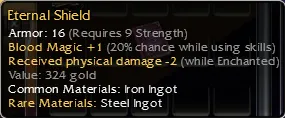Posts by Neutral_CH
-
-
Update 22.12.2025:
- Various images added (table, maps, screenshots) to enhance the tutorial. (I am limited to 25 images. I still have a few more in reserve).
- A few new sections added (Tables, A7, B6)
- Multiple corrections (translation, meaning, additions) in most sections.
- (Preparation of a section E. Red line, grouping together various bugs and exploits from the past. Of course, for obvious reasons, I will not discuss bugs, exploits, and reverse engineering that are still possible today).
I'm starting to find this tutorial interesting, I'm almost satisfied
 But I really need to find a solution to the Delver title problem...
But I really need to find a solution to the Delver title problem...EDIT: correction for C3: Obisidian armor (22000xp - access to Capitals boat/travel required) native of Cantha -> skip: A Master's Burden + Mayhem in the Market.
-
So you have the usual boring stuff:
- Update Windows, GC, and various drivers
- Reinstall GW
- Test the hard drive
- Test the RAM
- (etc.)
Edit: you have integrated Intel graphics? Even with a dedicated graphics card, try disabling them or updating them. See also windowed mode rather than full screen mode.
-
Various graphics issues depending on what you do in GW, using certain consumables with certain graphics options or certain places or missions (see Reddit).
-
Have you tried simply disabling the additional graphics options with Reforged? Given the negative feedback on many points, a future update will be needed.
(What is ML?) .. edit: multilaunch? If so, insisting or restarting usually solves the problem.
-
Up
( jack l eventreur i check if you connected but not seen online).
-
Le sceptre = le baguette
La baguette
-
Adjusted item spawn rarities in Reforged mode
what's this about?
Good question, no mention on update of 18 december, just:
- Players gain 5% more experience and gold in the Prophecies campaign.
Edit: According to Reddit, they had more drops than normal, and this has been corrected.
-
Unimportant..
It's a debate, and everyone is entitled to express their opinion. And given the tone of your message, if it makes you react, get angry, so much the better

I’m not angry you’re just what’s wrong with our country
An entitled brat so called Bünzli
A debate without any foundation isn’t a debate sorry.. I know stupidity is rampant but try not to spread yours.
Whoever I am, you can simply move on or discuss the subject from your point of view; there's no need to attack me.
Because calling me a Bünzli without knowing me is indeed a baseless argument.
Rest assured, it doesn't bother me. I'll continue as I see fit, as long as I stick to discussing the subject and don't tell people how they should behave because I don't share their opinion, or insult them gratuitously as you do. Criticize what I say about the subject of this thread, not what you mistakenly think you know about me IRL, thank you.
Happy holidays anyway.Well.. Let's return to the topic at hand.
Update -- December 19, 2025
Hotfix #1
- Fixed an issue where a player could move the camera in some character select scenes that would leave the camera in an awkward position when switching back to the Prophecies pregame scene
- Fixed a bug where players would sometimes get flagged with Dishonor when entering Ascalon Academy
- Fixed a Reforged mode bug where some henchmen would become stuck in later Prophecies areas
- Adjusted item spawn rarities in Reforged mode
- Health and armor adjustments are no longer applied to pets, minions, and NPC's in pre-Searing
- Adjusted the spawn position coming out of Ashford Abbey to prevent some players in four-player parties from getting instantly teleported back
- Fixed an issue where some henchmen would not appear in your party when returning to an outpost in Reforged mode
- Account preferences updated more often on the server
Hotfix #2
- Fixed a client crash when logging out from certain maps with high graphics settings enabled, such as Doomlore Shrine
Oh no, I think it's outrageous that they dared to fix bugs, what a bunch of losers!

-
Do you ever stop complaining? Free content is added in a 20 years old game and is available in ALPHA and BETA and you cry about it. All you do is pulling stories out of your ass as if you have direct contact with the devs and know their future plans.
Tell me youre a Bünzli without telling me you're a Bünzli..It's a debate, and everyone is entitled to express their opinion. And given the tone of your message, if it makes you react, get angry, so much the better

-
In terms of communication, it is unclear on their part not to communicate with the community during an update like yesterday's and to clarify to players whether or not the icons will remain on the characters created. Whether or not creating a character with this option will remain available after the beta (because let's not forget that if they also apply it to old characters, it couldn't be done using this option during creation, so it wouldn't exist today or tomorrow(?). Whether or not the content will then be open to everyone, without distinction after beta. Etc.
In short, Anet, what are you waiting for? You managed to sync an IGN article with screenshots, info, etc., on the day Reforged was announced, but now nothing?
-
I expect that once they decide it is stable, that you might enroll as Reforged character for existing characters.
I absolutely do not think so.
- Instead of doing a true remastered version, a vanilla version, or outright opening a new server, their system is more economical. It's a simple option during character creation that determines it.
- If this were to exist for existing characters, it would be a option. A definitive option. An option that you constantly check or uncheck would make no sense. So it would automatically be on for everyone today, period. Simply owning GW1 would be enough. No need to check an option during character creation. The same goes for titles, since we're talking about them right now. If account titles don't have associated symbols, it's because only the character is reforged, not the account.
- And ultimately, if all characters will have access to the new content one day, why display the icons in alpha testing only for newly created characters? To indicate that they are testers? No, the icons will remain and will be part of Reforged to differentiate characters that have been created and have access to Reforged.
-
I don't know about you, but Guild Wars is the only game where I've kept and developed my progress for years, almost 20 years now. In all other video games, at worst I start a new game, no big deal. Let's not be hypocritical, even if Guild Wars isn't the center of our existence, over such a long period of time, if for any reason I could no longer access the game, it would make me a little sad and above all nostalgic. But that's life.
Now, regardless of your opinion, mine is that I think this reforged evolution bad omen.
First, the announcement of Reforged. Okay, you don't have to buy anything if you already have an account, it's not a remastered version, nor a vanilla version, etc. Cool! How could I complain about such news? Honestly.Then, since yesterday, things have changed. I'll recap the process since the announcement -> Reforged is a free update for those who already own the game. You can buy Reforged in the store. This version does not include Eyes of the North, because the Reforged content will be available for characters newly created from a campaign (which is not the case with EOTN), giving advantages for each campaign that the Reforged character is native to (and more for the future?).
If you don't group exclusively with reforged characters, the new content won't be available. Even if it's just an empty outpost. If you have main characters that you care about, you'll have to redo everything you've already done, just for this new content (which is minimal, at least for now...). At the same time, to compensate and go old school, they let you change the background of the login screen. A screen where you can spend hours admiring your frustration and that of your old and admirable characters, excluded from all this.
But hey, the icons next to the character are the best of the best, right? You can really show off, like, hey, did you see that? Did you see that? Hey, hey! So cool, I have the icons! Holy shit, I'm a star! Oh shit, you created your character two weeks ago? Too old!
Between us, I don't like the direction this is going at all. The more elements they add, the wider the gap will become.
Well yeah thats what i am kinda after, if u start fresh account will u get them, for older accs i dont think u can get them. Id like to see first dhuum max treasure hunter!
Logically, only personal titles will be affected.
-
Pre lost so much of its charm when reaching level 20 became easy.
-
-
-
If they would have launched this as the Reforged update, the hype levels would be through the roof.
It's true that those who returned two weeks ago can delete their characters and start over (?) And all our old characters will be stuck in “the old instances,” forced to recreate PvE characters to play in reforged mode with the new instances (see my last post above).
-
I think that a level 1 with: Reforged Mode + Dhuum's Covenant + Tyrian Grandmaster Cartographer (and incidentally I'am Very Important (3) could be interesting to do

Edit: Before creating a character, remember that only those native to Tyria will have Reforged Mode available. And given the advantages, there will be no difference in areas outside Prophecies. Wait and see for other campaigns after alpha mode?
We can also deduce that non-reforged characters will live forever in the past, compared to the content of instanced zones. As mentioned in the update:
QuoteFor multiplayer parties, all players have to be in Reforged Mode to experience Reforged Mode content and balance changes. Mixed parties will see the standard content.
-
One more thing about Piken Square.
QuotePiken Square will be accessible as an outpost for Reforged Mode players in pre-Searing Ascalon - but you'll have to fight your way there.
Okay, so with a level 1 character with no skills, I managed to reach it, and once you get there, there's nothing special, just an outpost... Why limit it to reforged characters? That's strange. When I read the update, I thought it would be something like an arena or an epic battle to unlock it.
-
I hope they open Piken Square up in presearing to existing characters. The new Piken outpost in presearing is in an ideal location to run outside and immediately begin killing in the northlands... would really prefer for my existing characters in pre to be able to access that. I don't see a great reason to make it exclusive to the new "reforged" characters. "reforged characters" getting more xp and gold, against foes that have lower hp and armor (again, for "reforged" characters only), also seems like a dumb idea. Pre is already a breeze if you don't pull too large of a group at once. In addition, the 4 player party mode makes it even easier. I'm confused by the thought process here, even though updates are exciting and show continued dedication to the classic GW1 servers.
I tried to go there with a non-reforged character in the group, but that's not available... (No portal appears for the outpost, including the sign)
I managed to get there with my level 1 character
 after dying and seeing Dhumm finish me off, then respawning and heading straight for the outpost entrance.
after dying and seeing Dhumm finish me off, then respawning and heading straight for the outpost entrance.Edit: same after unlock outpost (and the monsters are also not the same if there are only reforged characters in the group) ->
-
-
I went through the motions of a new toon to see if the badges were available on existing accounts ( I wasnt sure), they were there on naming page.
The symbols appear next to the character in the game, much like the symbol used by Anet developers.
-
Spot the difference game

Hint: I'm in Pre...
-
Update:
Feedback:Game updates/20251218 - Guild Wars Wiki (GWW)
QuoteUpdate -- December 18, 2025
Features
Our partners at 2weeks.games have been hard at work understanding our tool chains. We present to you their first experiments!
Reforged Mode (Alpha)
- Activate Reforged Mode (Alpha) during character creation.
- Your character will have a badge visible in-game
 .
. - Piken Square will be accessible as an outpost for Reforged Mode players in pre-Searing Ascalon - but you'll have to fight your way there.
- Players gain 5% more experience and gold in the Prophecies campaign.
- Enemies have lower health and armor in pre-Searing Ascalon.
- Henchmen have been retuned and are more powerful with have additional skills.
- The Northlands in pre-Searing Ascalon has additional spawns.
- Your character will have a badge visible in-game
- For multiplayer parties, all players have to be in Reforged Mode to experience Reforged Mode content and balance changes. Mixed parties will see the standard content.
- This is an alpha feature we are sharing early to gather feedback. It is only presented in English.
Dhuum’s Covenant (Beta)
-
- Activate Dhuum’s Covenant during character creation.
- Dhuum’s Covenant is a challenging mode, available throughout the game, where you strive to avoid dying. Ever.
- Characters created with Dhuum’s Covenant get a badge visible in-game
 .
. - Upon your character's death, you lose the badge permanently (but can keep playing the character).
- Any titles you earn while under Dhuum’s Covenant will have the badge in the Hero panel.
- If you lose Dhuum’s Covenant, any future ranks earned for that title will not display the badge.
- This is a beta feature and may undergo changes. It is currently only presented in English. We’d love your feedback!
Four Player Parties in Pre-Searing Ascalon
- This matches the maximum party size at the beginning of Factions and Nightfall.
One More Thing
Classic pregame backgrounds
- You can now choose which background scene is displayed during login and character selection!
- Choose your background in Options->General->Pregame Scene
- Choose between Prophecies, Factions, Nightfall, and Eye of the North.
- The Prophecies scene was not designed to support 360 degree views therefore it has a fixed camera placement. There is some risk that the zoom level may cut off some of your view of your character in ultrawide screen resolutions.
Bug Fixes
- Fixed a delay where Steam DLC was not always available immediately after purchase.
- Fixed a bug where the mouse would move unexpectedly when you touched the screen on some devices like Steam Deck and Windows-enabled touchscreens.
- Activate Reforged Mode (Alpha) during character creation.
-
-
-
admittedly my post about model appearance might be deserving of its own thread. i asked the question merely to gauge if others have noticed it too. and i expected for it to get buried in the normal flow of the thread. while separating the 'how did gw treat you today' thread from this general no-drops thread would slow down the process of individual posts getting buried, it would still happen.
There are also many posts on the original topic that do not warrant a separate or unique topic. I like to remind that from the very first page, this thread was used to post completed titles, etc. That's why it was good.
We're not going to create 10 different topics. One for drops, one for titles, one for in-game observations, etc.
But that's what ended up happening. The original topic was nerfed, when the problem was simply the section it was in, not its content. And another topic was created that no one is interested in and no one asked for (otherwise we would have just created it ourselves).
Today, we see one of the only popular and active topics on the forum, which almost everyone visits at some point, destroyed by these ill-considered decisions.
-
Share whatever you have going on in-game/discussion here.
The Xunlai Market for items/drops still exists here: How did Guild Wars treat you today? Items/Drops ONLY
Just don't post the same content in multiple places. Thanks.
Sorry to say, but I won't be posting in this newly created thread. I'm not looking for a fight, but that wasn't the point of separating things.
The topic: “How did Guild Wars treat you today?” could be used both for drops in general and for what we saw or experienced in the game. Most of the contributors who had already posted once received a notification when a new message was published. That's important. No one will come here. There's no history either. In short, this doesn't solve anything, but divides and discards people who don't post drops in a dead-end topic.
I'm willing to discuss this further or find another way of doing things, but this isn't the right one. I also understand that we shouldn't discuss the same topic in several places. But that's not the case 99% of the time for the topic: How did Guild Wars treat you today? Updates? Reforged is an exception. Other than that, I don't see where the duplicates are (?)But I insist that the mistake in all this was made when you updated the topic last November, when there was no need to do so. Moving it somewhere other than the Xunlai section would have cleared up any confusion. Rather than forcing people to only post game drops. Insisting on this approach and not acknowledging this mistake will lead us to a dead end.
In short, this is a useless topic that solves nothing, sorry. If there's anything else I can do, please don't hesitate to let me know. -
Again today, but I didn't take any screenshots. I was the drunk monk, no reflexes, but congratulations to the group members for their 25 consecutive victories! Burp!
I love use this:
OwEU04nA1KSNgaE3N3EQgTfpF8FA
Easy and sleep game... burp!
Hum /cogite.. more beer!
-
-
Hi,
I am looking for blue shields inscr. in tactics to complete the table below. The boxes marked with a ✓ are no longer needed.
Name of Shield Req5 Ar13 Req6 Ar14 Req7 Ar15 Req8 Ar16 Round Shield ✓ ✓ ✓ Crude Shield ✓ ✓ Sea Purse Shield ✓ Shield of the Wing ✓ ✓ ✓ ✓ Skeleton Shield ✓ ✓ ✓ Tall Shield ✓ ✓ ✓ Militia Shield ✓ ✓ Great Conch ✓ ✓ ✓ ✓ -
Nothing on my end with Firefox and Windows 11. Try using another browser. If that doesn't work, it's a general issue on your end (permissions, configuration, IP, etc, related to error 403). If it works, it's only related to your Firefox configuration.
-
But you're not talking about drops? Ouuh, the moderator is going to be all over you!
Copy of request send PM for all moderators:
QuoteDisplay MoreHello,
(Sorry if my English is poor, I'm translating from the internet).The subject mentioned in the title is in the section: The Xunlai Market. In the first post it is stated:
QuoteFigured it was time to get this one up and running again...if need be someone will merge it with the old one (wont be me though)
so let us know what good (or really bad) things happened for you today while playing!
But very quickly, from the very first page, participants posted their titles and many other items besides the drops. This topic has also become very popular and widely followed. It has become a general topic of discussion: what happened to you in Guild Wars today, whatever players wanted to express about the game. I am far from being the only one who follows this topic more than any other on the forum.
Since last November, an update to the topic requires that we only talk about drops, as it is in The Xunlai Market section. This is not a good choice, and an opinion poll would also demonstrate this. Re-creating a similar topic would not have the same impact, and most people on the forum would not follow it in the same way (not to mention the history of the current topic).
The right solution would have been to change the section of the topic, not to restrict it solely to posting drops. On behalf of most people on the forum, please make a change that will allow us to view this topic as we did before.
Wishing you happy holidays.express your opinion here if necessary.
-
I'll buy it if it's still available.
-
Hi,
I am looking for blue shields inscr. in tactics to complete the table below (q7-8 as a priority). The boxes marked with a ✓ are no longer needed.
Name of Shield Req5 Ar13 Req6 Ar14 Req7 Ar15 Req8 Ar16 Round Shield ✓ Crude Shield ✓ Sea Purse Shield ✓ Shield of the Wing ✓ ✓ Skeleton Shield ✓ ✓ Tall Shield ✓ ✓ Militia Shield ✓ ✓ Great Conch ✓ ✓ [close plz] Sorry i create other with table (not possible edit title of thread). Or edit with: WTB - blue shields inscr. tactics q5-8
-
-
Even with new content, it’s very hard attracting new players to very old games, unless it’s a full expansion. It mostly just brings back old players rather than fresh blood.
It's still very low in terms of new players with Reforged, that's obvious. And expecting a large number of new players is unrealistic. That's why we shouldn't expect a new expansion or anything like that.
These discussions about the future of GW have been going on for years, and the outcome is always the same: there are those who dream and those who don't.
-
Not trying to be an ass, and would genuinely like your thoughts because I disagree. How would new content drive in new players? It’s a 20 year old game. If they aren’t playing now when there is already tons of content, what would more content add at this point for a new player?Promoting additional content and word of mouth could attract new players. The proof is in Reforged: there was no real new content, but the promotion was enough to bring in both old and new players.
For veterans, if there is new playable content, they will “blow through it” in a few days at most, then return to our good old favorite habits.
An improvement to existing content, such as a trading post, the last missing boss in an elite zone (FoW), missing attributes and weapons (weapon family), etc., would be more appropriate and realistic.
-
I'm happy to see more players active in the game again since the release of Reforged. But that's also what surprises me the most. Reforged hasn't really changed anything in GW1; there have been more significant updates in recent years than Reforged. So players could have come back years ago.
We need to give it more time for this wave to become concrete and solid. We are still in a fragile period, with an old, dusty game. And its economic system, coding possibilities and the very small team still working on the game will not allow for a GW 1.5. Just be happy that the servers are still open.
Hell I would pay a subscription charge for some improvements.
I'd rather die or see the server shut down permanently than see GW1 switch to a subscription model!
-
External Content youtu.beContent embedded from external sources will not be displayed without your consent.Through the activation of external content, you agree that personal data may be transferred to third party platforms. We have provided more information on this in our privacy policy.


















